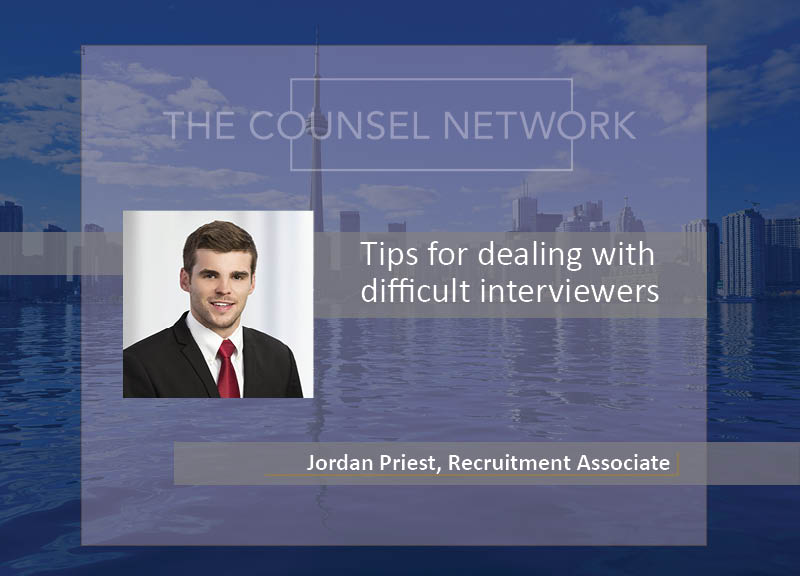Tips for dealing with difficult interviewers
You’ve fully prepared for an interview and have brought your A-game to the meeting, only to run into the last thing you anticipated: a difficult interviewer. Your interviewer may come across as hostile – they may ask you questions in quick succession without smiling or comment on your answers. Or perhaps their body language is closed off, which makes you feel nervous and lose your focus.
While it’s not ideal, you may be faced with less-than-perfect interviewers again in the future. Therefore, it’s worth learning how to deal with these types of interviewers now and not let yourself get flustered in the moment.
Below are a few tips for dealing with difficult interviewers:
- Remain calm and confident
Take a moment to compose yourself. Try to maintain your professionalism and refrain from letting the interviewer’s behaviour push you to say things you may regret later. It’s important to protect your reputation, so know your value – you were chosen for an interview because the firm or company believed you had the right skills for the role. A difficult interviewer doesn’t change that.
- Show an interest in your interviewer
Sometimes, asking an interviewer about themselves helps bring down their guard. We always suggest candidates familiarize themselves with the company beforehand, but strive to engage the interviewer to get a better sense of the role, the team, and the overall organization. Ask questions like, “how long have you been with the company/firm?” or “how many people are your team?” It may help you connect with the interviewer on a personal level and can leave them feeling positive about the interview afterwards.
- Try to close strong
Thank the interviewer for their time and let them know that you’re very interested in the position. This shows that you can deflect their bad attitude and are entirely focused on the role in question.
Weigh your information carefully
Most law firms and legal departments have a multiple interview process, which gives you the chance to meet several key team members. Approach and asses each interview carefully, and keep in mind that not everyone involved in the interview process will reflect the core values of the organization. I recently had a situation where three candidates met with an in-house client. All three candidates loved their first interview, coming out more interested and invested in the role than before. Unfortunately, their second interview experience was much less positive than the first. From scheduling conflicts and the attendance of unidentified interviewers to off-colour comments from interviewers, all three had serious issues they wanted to discuss with me afterwards.
We talked it out, discussing why they were interested in the role in the first place and weighing both interviews. We carefully examined their experiences with each interviewer, particularly how they felt with about working with their direct report versus HR representatives they may not work with on a day-to-day basis. It’s important to focus on the role, the key people you’ll be working with, and how this position will benefit you long-term. We often think about the interview to as a way for a company to determine your suitability for a role, but also try to see it as an opportunity to determine the company’s suitability for your career.
If you’re interested in exploring your legal career options, contact us for a confidential discussion today.
Jordan Priest, Recruitment Associate
647.484.8314 / 403.444.1760


